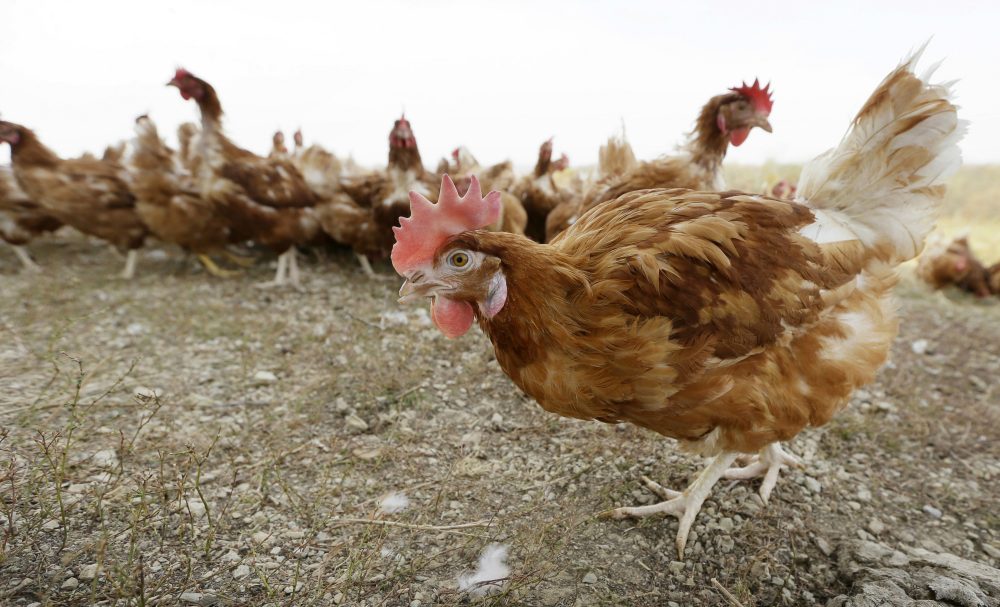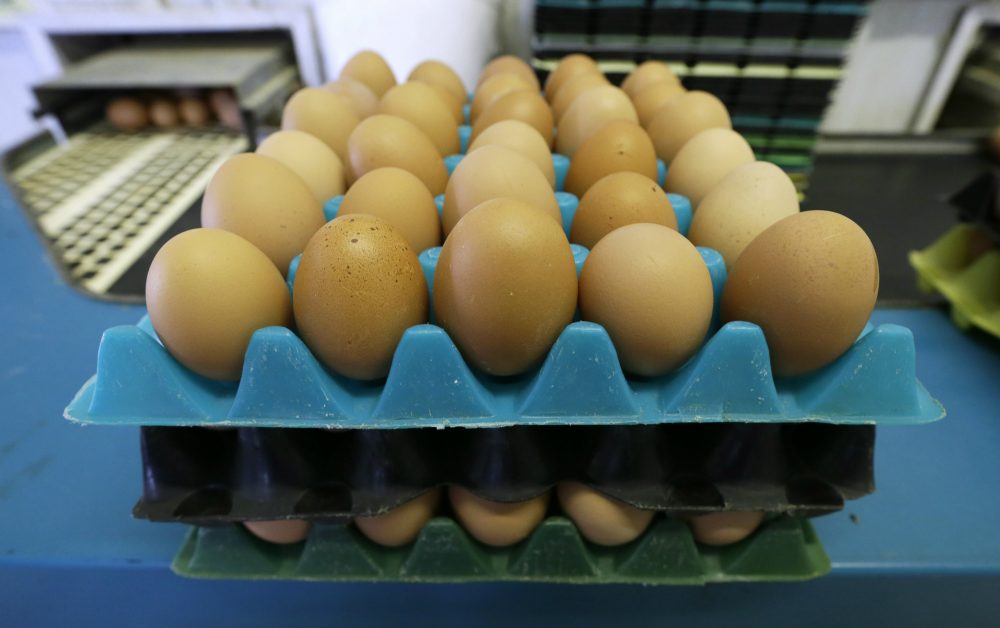Advertisement
Keeping Eggs Affordable: The Case Against Massachusetts Ballot Question 3

COMMENTARY
Ballot Question 3 in Massachusetts seems like a simple question about the treatment of local farm animals. So far, it has been the least controversial of the four statewide ballot questions, attracting strong support in a WBUR poll and a long list of prominent endorsements, including one from The Boston Globe.
We strongly support the animal welfare objectives of Question 3, but the more we learn about the measure, the more harmful we find its unintended consequences are likely to be.
We are proud of Massachusetts farmers, all but one of whom already meets the proposed standard. For that reason, Question 3 would have little impact on in-state farms.
The measure would improve conditions for millions of animals across the U.S., offering a welcome victory for the national animal rights community. Unfortunately that would come at the cost of unknown and potentially large increases in the cost of a nutritious staple food used disproportionately by low-income families.
On balance, our support for Question 3 depends on whether we believe other states and the federal government would respond in ways that would keep egg prices low — or would take advantage of our concern for animal rights to raise egg prices, disproportionately affecting the health and well-being of vulnerable people.
A yes on 3 would ban the sale in Massachusetts of eggs, pork and veal from tightly confined chickens, pigs or calves by Jan. 1, 2022. The initiative, championed by the Humane Society of the United States and many other animal welfare advocates, would require that egg-laying hens be allowed sufficient space to extend their wings and turn around freely, with similar rules for pigs and calves.
Our long experience in the food system leads us to share the Humane Society’s deep concern for farm animals. We are proud of Massachusetts farmers, all but one of whom already meets the proposed standard. For that reason, Question 3 would have little impact on in-state farms. The measure's call for cage-free pork and veal would have similarly small effects, since the nationwide production of pigs and calves is increasingly moving to cage-free systems. What Question 3 would mainly do is end shipments into Massachusetts of eggs from caged chickens in Pennsylvania, Ohio and elsewhere, and fuel similar policy initiatives in other states.

The only previous policy change of this type in the U.S. has been in California, for which an independent estimate published in the September 2016 issue of the Journal of Agricultural and Resource Economics found increases of 50 cents to a dollar per dozen. In contrast, an industry-funded study in 2015 found that the underlying increase in cost for cage-free systems could be as low as 15 cents per dozen. Actual price increases would be kept low only if many competing generic suppliers use the most efficient cage-free systems. Limiting cost increases would require public funding to develop and spread more cost-effective systems that meet cage-free standards, as well as anti-trust enforcement to prevent the largest suppliers from exercising monopoly power. If these supportive actions are not taken, the price rise from cage-free requirements could be as large or larger than it was in California.
An important clue to the effects of Question 3 on consumer prices comes from the fact that big egg producers are not campaigning very hard against the measure. Although cage-free requirements in Massachusetts would require producers in other states to invest in new facilities, they would be more than compensated through higher prices. In effect, cage-free rules serve to restrict supply. Since fresh eggs are rarely traded with other countries, and most consumers will keep buying as prices rise, the only constraint on price increases comes from competition among producers.
Many voters would accept much higher meat prices to achieve gains in animal welfare, but eggs are not a luxury good: Low-income households in Massachusetts and other states rely on eggs for quick and nutritious low-cost meals. As concerns about dietary cholesterol have shifted, dietary guidance that once aimed to limit egg consumption no longer does so. Most nutrition advice now favors greater egg consumption, especially for consumers who cannot afford more costly sources of high-quality protein. The poorest often depend on SNAP or WIC benefits that do not adjust when healthier foods like fresh eggs become more expensive relative to less nutritious items. Making healthier foods more accessible depends on keeping their prices low.
An important clue to the effects of Question 3 on consumer prices comes from the fact that big egg producers are not campaigning very hard against the measure.
The more we understand Ballot Question 3, the more vexing the choice appears. From our long experience with U.S. agriculture and food policy, we know that America’s diverse and resilient farms could potentially deliver improved animal welfare without harming access to low-cost, convenient and nutritious eggs. But we also know that this won’t happen automatically. If government remains on the sidelines, a yes vote on Question 3 would bring unacceptable price rises.
Until we can be more confident that cage-free standards won’t lead to sharp egg price increases, we reluctantly plan to vote no on Massachusetts Ballot Question 3.


